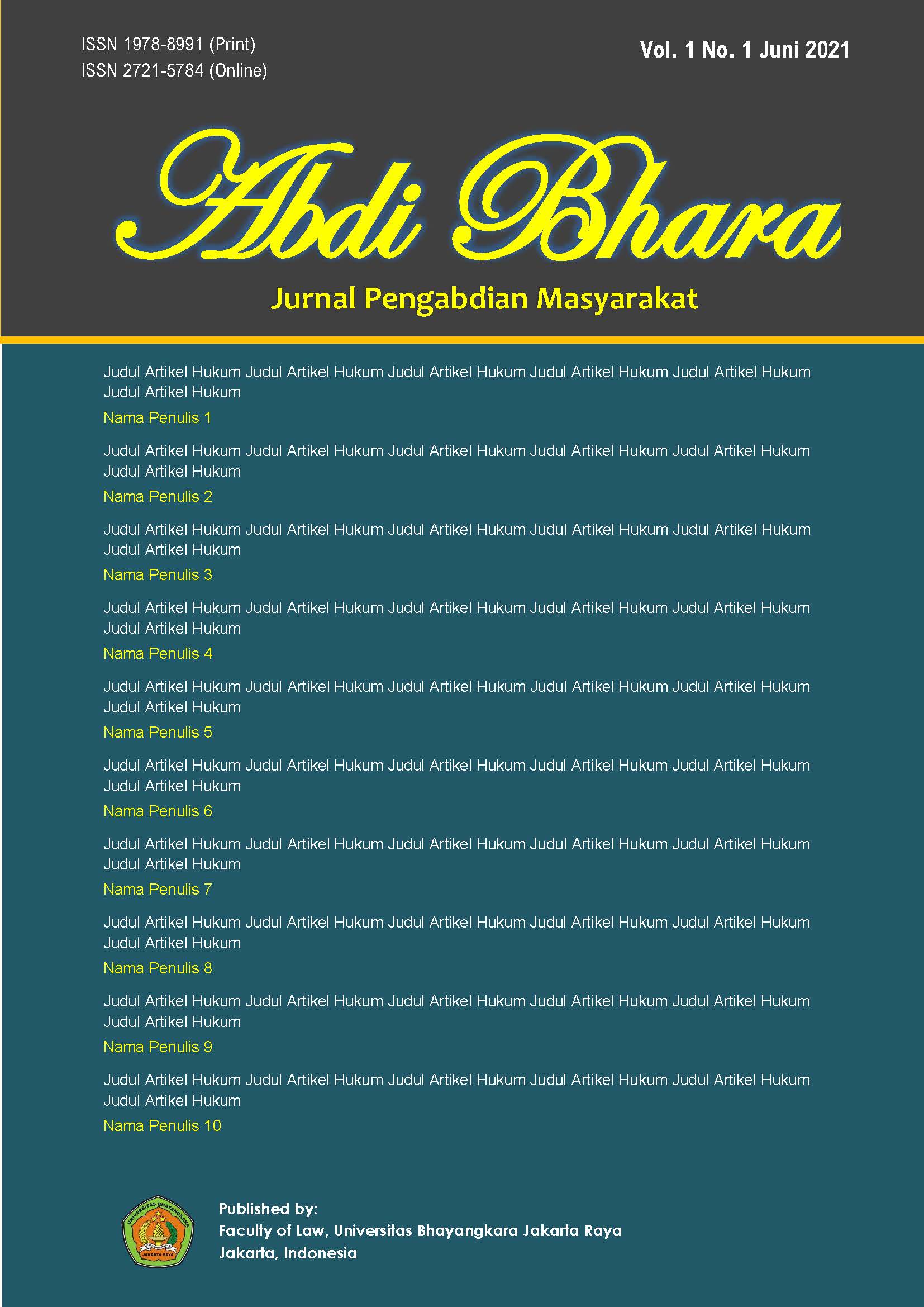PENYULUHAN HUKUM HAK TERSANGKA DAN TERDAKWA DALAM PROSES PEMERIKSAAN DI KEPOLISIAN, KEJAKSAAN, DAN PENGADILAN
DOI:
https://doi.org/10.31599/0412t170Keywords:
Tersangka; Terdakwa; Pemeriksaan; KUHP.Abstract
Suspects and defendants need to know the rights they
have in the criminal justice process in Indonesia. The aim is to
find out what legal remedies can be taken if it turns out that there
are deviations from the rights of suspects and defendants carried
out by law enforcement officials, both in the process at the police,
prosecutors, and courts. The research used is a normative
juridical research that is normative, namely examining the law
which is conceptualized as a norm or rule that applies and
becomes a reference for the community. The rights of a suspect
or defendant must have been given during the examination,
starting from the preliminary examination, prosecution and
examination before a court trial and in accordance with the
Criminal Procedure Code. With the conclusion that the rights of
suspects and defendants have been regulated in detail in the
Criminal Procedure Code, namely in the following articles,
namely articles 50 (paragraphs 1, 2 and 3), 51 (letters a and b),
52, 53 (paragraphs 1 and 2), 54, 55, 56 (verses 1 and 2), 57
(verses 1 and 2), 58, 59, 60, 61, 62 (verse 1), 63,64,65, 66, and
68. Investigation , prosecute, and punish crimes or violations
intended to establish order, peace and security for the community
and must not injure and deprive individuals of their rights.
Recognition of the rights of suspects in the national criminal law
system is regulated in the Criminal Procedure Code and Law
Number 48 of 2009 concerning Judicial Power which regulates
legal remedies that can be taken by suspects if it turns out that
the suspect's rights are not enforcede.
Downloads
Published
Issue
Section
License

This work is licensed under a Creative Commons Attribution-NonCommercial 4.0 International License.











_-_Copy1.jpg)


